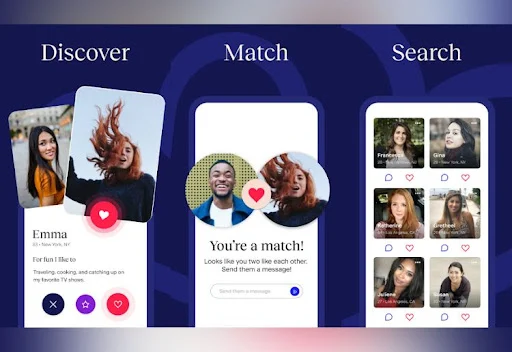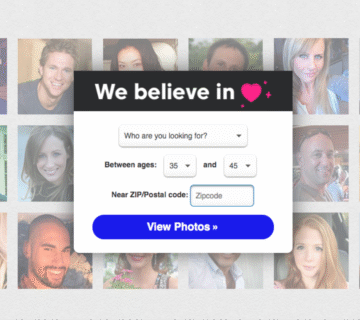Online dating can be transformative, but it comes with a big question: Are there fake profiles on Match.com—and if so, how can you protect yourself? As one of the world’s most popular dating platforms, Match.com draws millions of real singles, but it’s not immune to scammers, bots, or deceptive users.
The Truth: Yes, Fake Profiles Exist on Match.com (Even in 2025)
Like every major dating app, Match.com is not immune to fake profiles or scams. From sophisticated romance scammers to bored catfishers, some users create accounts to deceive, manipulate, or profit from others.
-
Scams range from basic identity theft to complex catfishing operations—where someone fabricates a persona using stolen photos, generic bios, and manipulative messaging.
-
Lawsuits and customer complaints have at times alleged high rates of inactive or fake profiles on the platform, though Match.com disputes extreme figures and actively fights fraud.
-
Proactive safety steps by Match.com reduce risks but do not eliminate them entirely—so user vigilance is key.
Why Do Fake Profiles Exist?
Fake profiles serve many purposes:
-
Catfishing for Romance: Scammers use fake personas—usually very attractive—to lure real users into emotional (and later, financial) traps.
-
Identity Theft: Stolen photos and personal details build trust with victims, making scams more convincing.
-
Spam & Bots: Automated accounts may send unsolicited links, ads, or malware.
-
Confidence or Boredom: Rarely, some people catfish simply for attention or entertainment, not to steal money.
The Most Common Match.com Scams in 2025
-
Romance Scams: Scammers build chemistry, then invent crises that require you to send money, photos, or sensitive information.
-
Phishing Links: Messages direct you to suspicious sites to steal your login or financial info.
-
Too-Perfect Profiles: Photos look professional or ‘model-like,’ bios are generic or elaborate, and the user never agrees to meet in person.
-
“Traveling for Work”: The scammer claims to be traveling or living overseas, making it impossible to meet or verify them quickly.
How to Spot a Fake Profile on Match.com
Spotting fake profiles is a mix of skepticism, online safety, and pattern recognition. Watch for these major red flags:
1. Profile Photos Seem Too Good to Be True
-
Only one or two, model-grade photos.
-
Reverse image search reveals the photos elsewhere, sometimes on modeling sites or stock photo libraries.
2. Generic or Vague Bios
-
Overly broad interests (“I love dressing up or down!”) and no specific details.
-
Contradictory information (age, background, interests that don’t add up).
3. Pushy or Accelerated Conversations
-
They quickly express deep emotions or want to move the conversation off-platform.
-
The person tries to get you to WhatsApp, email, or another chat app right away.
4. Evasive About Meeting or Video Chats
-
Excuses for never meeting in person, refusing video calls, or deflecting when you ask for more photos/identification.
5. Requests for Money, Gifts, or Personal Details
-
Any request for a loan, help, travel funds, or your financial/bank information is a major red flag.
-
Be wary if someone quickly asks for your address, workplace, or other private details.
6. Poor Language, Suspicious Links, or Odd Behavior
-
Frequent spelling or grammar mistakes, repetitive messages, or links to unfamiliar sites.
How Match.com Fights Fake Accounts (And What You Should Do)
Match.com uses:
-
Photo Verification: Users can verify their photos using selfie and facial recognition; blue badge profiles are safer, but this isn’t foolproof.
-
AI and Human Moderation: Automated tools and teams looking for suspicious activity or patterns such as mass-messaging or phishing attempts.
-
Incognito/Browsing Privacy: Paid features allow private browsing, but all users can report suspicious behavior.
-
Profile Reporting & Blocking: Easily accessible tools to flag, block, or report fake/scam users.
What YOU Should Do
-
Use reverse image search on suspicious photos.
-
Ask for a live photo or video call. Catfish avoid real-time proof.
-
Never send money to someone you meet online—no exceptions.
-
Limit the personal information you share, especially early on.
-
Trust your gut: If it seems off, it usually is. Report and block.
FAQs About Fake Profiles on Match.com
1. Are most profiles fake?
No, the majority of users are real people, especially those who participate in messaging, video calls, or verified profiles. However, high-profile lawsuits and user reports make clear that a meaningful minority of profiles may be spam, bots, or dormant accounts.
2. Does profile verification make someone real?
Verified profiles are safer, but not a guarantee. Fraudsters can sometimes circumvent basic checks. Stay alert even with verified accounts.
3. Can I be scammed if I never send money?
Yes. Scammers sometimes harvest personal details for identity theft, not just money.
Real-World Example: Identifying a Catfish on Match in 2025
Red flags in a (real) fake profile:
-
Only two photos, both obviously professionally shot.
-
Immediate interest after little messaging; professes love fast.
-
Invites user to private chat, avoids video call.
-
Suddenly “can’t access money” while traveling, asks for help.
Tip: If someone refuses a video chat, requests money, or seems “too good to be true,” report and move on!
Staying Safe: Advice
Online dating safety is everyone’s responsibility. For the most up-to-date guidance on spotting scams, handling data, and protecting yourself, visit the Federal Trade Commission’s guide at https://consumer.ftc.gov/articles/online-dating-scams.
Read More: What Is the Male to Female Ratio on Match.com? The Definitive 2025 Guide
Summary:
Match.com remains a world leader in online dating, but fake profiles, scams, and catfishing attempts are still present in 2025. Stay alert for suspicious behavior, make use of Match’s verification tools, and guard your privacy—never send money or sensitive details. By being proactive and informed, you can safely enjoy genuine connections and protect yourself on your search for real love online.








[…] Read More: Are There Fake Profiles on Match.com? The 2025 Guide to Spotting & Avoiding Scams […]